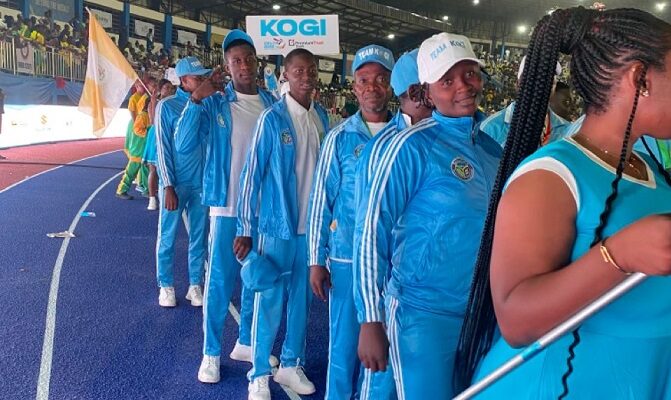Nigeria is a nation renowned for its rich cultural diversity, vibrant traditions, and love for sports. It’s a country where cultural celebrations and sports come together in a magnificent fusion showcasing its heritage’s beauty. Among the various avenues where this fusion takes place, sports festivals in Nigeria stand out as remarkable events that capture the essence of the nation’s culture. This article will explore the vibrant world of Nigerian sports festivals, emphasizing their importance and how websites like Bet Nigeria can provide valuable information for enthusiasts.
The Role of the Bet Nigeria: A Hub of Information
In today’s digital age, staying informed about sports festivals and cultural events is easier than ever, thanks to platforms like Bet Nigeria. While primarily known for its sports betting offerings, Bet Nigeria’s website also provides a wealth of information about sports events in Nigeria. It serves as a hub where enthusiasts can access details about upcoming festivals, schedules, participants, and historical insights.
Moreover, platforms like Bet Nigeria often offer special promotions and betting opportunities adding an extra layer of excitement for sports enthusiasts. However, it’s crucial to use such platforms responsibly and remember that the primary focus of sports festivals is to celebrate culture and tradition.
A Tapestry of Diversity
Nigeria’s sports festivals are a testament to its cultural diversity, as they showcase the rich tapestry of traditions, languages, and ethnicities that make up the nation. Each region boasts unique festivals rooted in the heritage of the people who call that region home. Here are some of the most prominent sports festivals in Nigeria:
- Eyo Festival (Lagos State): The Eyo Festival, also known as the Adamu Orisha Play, is a grand cultural celebration held in Lagos. It features processions of elaborately dressed Eyo masquerades, each representing a different family lineage. The festival is a spectacular display of Yoruba culture and traditions.
- Durbar Festival (Northern Nigeria): The Durbar Festival is a majestic display of horsemanship and military parades, primarily held in northern Nigerian cities like Kano and Katsina. It celebrates the martial heritage of the region and showcases breathtaking equestrian skills.
- Igue Festival (Edo State): The Igue Festival is an ancient cultural celebration held in Benin City, Edo State. It involves traditional wrestling matches, dance performances, and the Oba (king) blessing. The festival is a testament to the enduring traditions of the Edo people.
- Ojude Oba Festival (Ogun State): The Ojude Oba Festival in Ijebu-Ode, Ogun State, is a grand gathering of the Ijebu people to celebrate their monarch. The festival includes horse racing, parades of age groups, and colorful displays of traditional attire.
- New Yam Festival (Various Regions): The New Yam Festival is celebrated by various ethnic groups across Nigeria, including the Igbo, Idoma, and Tiv people. It marks the harvest of new yams and involves traditional dances, masquerades, and wrestling contests.
- Argungu Fishing Festival (Kebbi State): This unique festival takes place in Argungu, Kebbi State. It features a fishing competition in the Matan Fada River, where participants use traditional fishing methods. The festival celebrates the resilience of the local fishing community.
Fostering Unity and Tradition
Nigeria’s sports festivals serve as powerful vehicles for promoting unity and cultural preservation. These events unite individuals from various backgrounds, surpassing differences in ethnicity, religion, and region. They provide a platform for the intergenerational transfer of knowledge as younger generations learn about their cultural heritage through sports, traditions, and storytelling.
Additionally, sports festivals bolster local economies by attracting tourists and promoting local businesses. The festivals create opportunities for artisans, craftsmen, and performers to showcase their skills and products, contributing to the nation’s cultural and economic development.
Challenges and Aspirations
While Nigeria’s sports festivals are cherished cultural traditions, they also face challenges that need attention and support:
- Infrastructure: Many festival venues need more modern facilities and amenities, hindering the comfort and safety of participants and spectators.
- Funding: Adequate financial support is essential to sustain and enhance these festivals, ensuring they continue to flourish for generations to come.
- Preservation: Efforts should be made to document and preserve the rich cultural elements of these festivals, safeguarding them from erosion due to modernization.
- Promotion: Greater efforts are needed to promote these festivals nationally and internationally, attracting more visitors and ensuring their continued relevance.
- Youth Engagement: Encouraging the participation of younger generations in these festivals is crucial for their continuity.
Conclusion
Sports festivals in Nigeria are not just events; they are cultural treasures that connect the past, present, and future. They serve as reminders of the nation’s rich heritage and the importance of preserving these traditions for generations to come.

